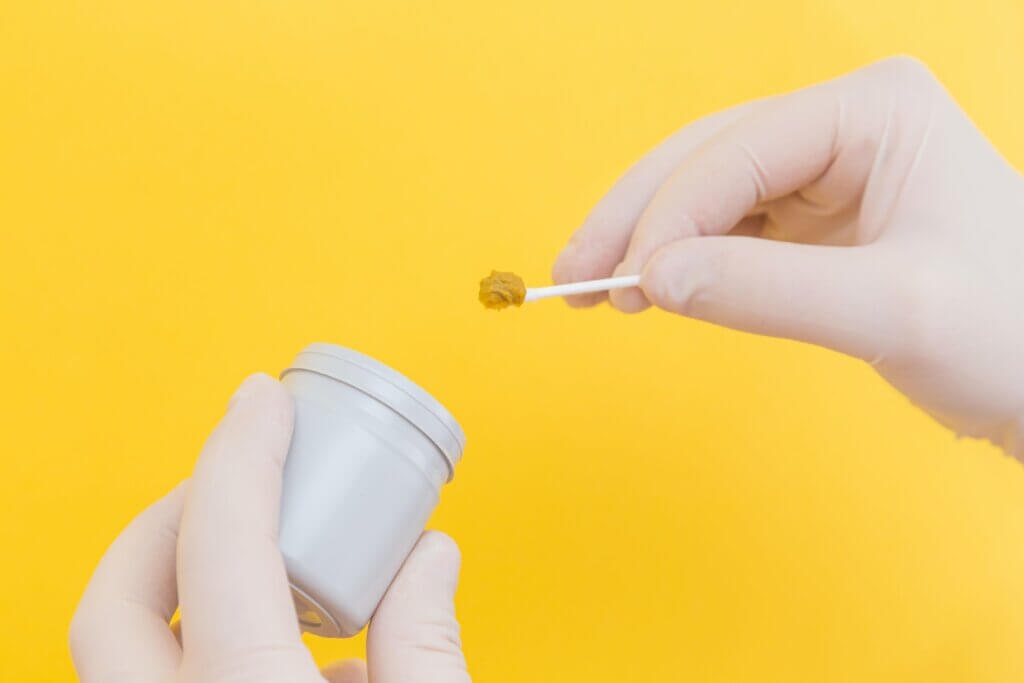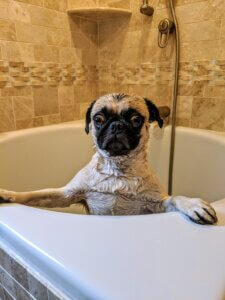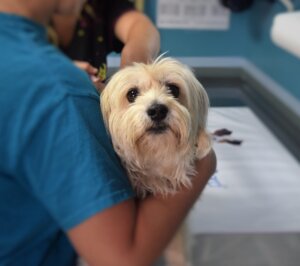How to Collect a Stool Sample

There comes a time when all dog parents are asked to collect a stool sample. Technically, this should happen semi-regularly. Even so, the idea of collecting your dog’s poop and carrying it with you to the vet’s office makes many people uncomfortable. It doesn’t have to be!
By the time you finish reading this, you will understand that this is not only a common request, but it is also a really important one. Plus, you’ll know how to scoop the poop like the pros!
Why Your Vet is Asking for a Stool Sample?
First things first, let’s talk about why your vet has asked you to bring in a stool sample. The short answer is to check for parasites.
Pet Health Network explains, “Fecals allow veterinarians to check your pet for intestinal parasites. Intestinal parasites are a major cause of infection in pets and also a concern for people. According to Kansas State, 34% of dogs in the United States have some kind of intestinal parasite.”
Specifically, veterinarians are looking for intestinal parasites including hookworms, roundworms, whipworms, coccidia, and giardia. Not only are these intestinal parasites bad for dogs, but they can also be transmitted to humans. Therefore, testing a dog stool sample is a way to protect your dog and your human family members.
How Often Should You Collect a Stool Sample?
According to the Companion Animal Parasite Council (CAPC), fecal diagnostics should be performed at least 2-4 times a year.
With that being said, it is standard for veterinarians to ask you to bring a stool sample to your dog’s annual examination.
You may think that seems excessive, especially if you haven’t seen any worms in your dog’s poop. However, one study found 54% of the dogs who tested positive for intestinal parasites didn’t show any signs of a parasitic infection.
Plus, it’s much easier to treat a parasitic infection if you catch it earlier rather than later.
How to Collect a Dog Stool Sample?
Now it’s time to get down and dirty. Just kidding. You should absolutely NOT get dirty when you collect a stool sample.
When it comes to collecting a stool sample for the vet, don’t overthink it.
If you have ever used a poop bag to pick up your dog’s poop, you have the basic idea.
- Get your container ready.
- Pick up the fresh poop without touching it. For example, put your hand inside the poop bag and use the bag as a glove to pick it up. Then, turn the bag inside out.
- Store the poop in a cool place, such as a refrigerator, until your appointment.
- Write your dog’s name on the container.
If you’re worried you won’t do it right, take a minute to watch 7 Hilariously Bad Ways to Collect a Poop Sample.
What Should You Store the Poop In?
When it comes to storing the sample, you have several options.
- A Ziploc bag (double bag it to be safe)
- A fecal container from your veterinarian’s office
- A sealed plastic (disposable) container
- A doggy poop bag
Just don’t take it to the vet in a paper towel, toilet paper, or medicine container.
Speaking of storing, it is important to note that the vet needs a fresh sample. This means you can’t just get a pile of poo that has been sitting in your yard. (Why’s poop in your yard anyway? Call Super Scoopers to banish it!) Instead, try to get a fresh sample close to your appointment time. If that is not possible, you can store it in your refrigerator for several hours.
How Much Stool Is Needed?
Often, people will take the entirety of their dog’s bowel movement. This isn’t necessary. Your vet only needs a small bit of fecal matter to test it. Aim to take your vet only about a gram of poop, which is about the size of a sugar cube.
How Do Veterinarians Do a Fecal Test?
In order to check for parasites in the stool sample, your veterinarian will look at it through a microscope since many can’t be seen with the naked eye.
This involves either a smear test (a small sample is smeared on a glass slide), floatation, or centrifugation. Both floatation and centrifugation involve placing the poop in a special solution that forces the parasites to move to the surface, which can then be viewed with a microscope.
For the doggy doo not being taken to the vet, schedule poop scooping with Super Scoopers!





